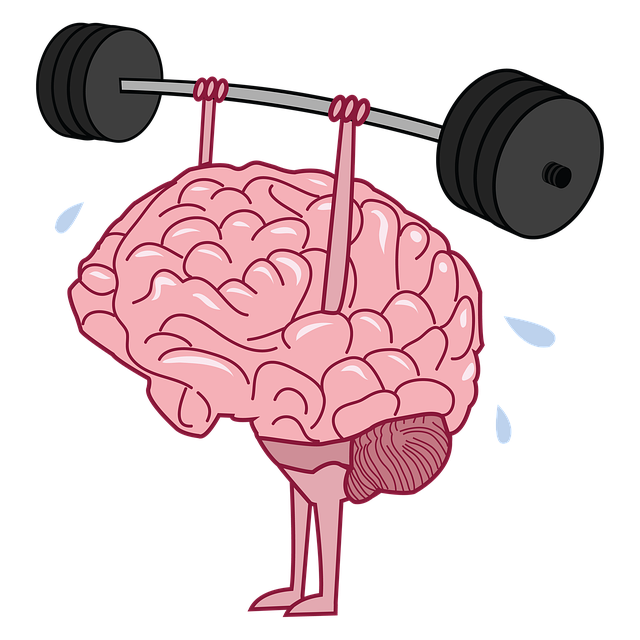Emotional Intelligence (EI) is a valuable asset for Mandarin Chinese speakers, enhancing communication and relationships. Therapy tailored for this demographic offers a safe space to develop self-awareness through mindfulness meditation and stress management techniques, addressing cultural nuances in mental health care. By incorporating practical strategies like meditation, social skills training, and positive thinking practices, therapy empowers individuals to navigate emotional challenges effectively, fostering personal growth and professional success.
Emotional intelligence (EQ) is a powerful tool for personal growth and effective communication, especially for Mandarin Chinese speakers looking to navigate diverse cultural landscapes. This article delves into the significance of EQ, offering insights into how therapy can enhance it, particularly for cultural sensitivity. We explore practical strategies tailored for daily life and professional settings, empowering Mandarin Chinese speakers to unlock their emotional awareness potential. By understanding and cultivating EQ, individuals can foster better relationships and achieve greater success in both personal and professional spheres.
- Understanding Emotional Intelligence: Unlocking the Power of Self-Awareness for Mandarin Chinese Speakers
- The Role of Therapy in Enhancing EQ for Cultural Sensitivity and Effective Communication
- Practical Strategies to Cultivate Emotional Intelligence in Daily Life and Professional Settings
Understanding Emotional Intelligence: Unlocking the Power of Self-Awareness for Mandarin Chinese Speakers

Emotional intelligence (EI) is a vital skill for all individuals, especially those who speak Mandarin Chinese. Understanding and cultivating EI can significantly enhance communication and relationships, both personally and professionally. For Mandarin Chinese speakers, self-awareness plays a crucial role in unlocking the power of emotional intelligence. This involves recognizing and interpreting one’s own emotions, as well as understanding how they influence behavior and interactions with others.
Therapy for Mandarin Chinese speaking individuals offers a unique opportunity to develop self-care routines aimed at improving mental health. Incorporating practices like mindfulness meditation can help in managing stress, cultivating present-moment awareness, and enhancing emotional regulation. Risk management planning is also essential for mental health professionals who work with Mandarin Chinese speakers, ensuring they are equipped to navigate cultural nuances and provide culturally sensitive care.
The Role of Therapy in Enhancing EQ for Cultural Sensitivity and Effective Communication

For individuals who speak Mandarin Chinese or any other language, therapy plays a pivotal role in cultivating emotional intelligence (EQ). Through specialized therapy sessions, individuals can explore and navigate complex cultural nuances that impact their interactions. Therapy provides a safe space to delve into personal experiences, fostering self-awareness—a cornerstone of EQ. It teaches mindfulness techniques and stress management skills, empowering individuals to regulate emotions effectively in high-pressure situations.
Additionally, therapy for Mandarin Chinese speaking people offers valuable insights into nonverbal communication, which is essential for building rapport across cultural barriers. By addressing language-specific challenges and integrating mind over matter principles, therapy boosts confidence in social settings. This enhanced EQ translates into improved relationships, better conflict resolution, and more effective cross-cultural collaboration, making it an indispensable tool for personal growth and professional success.
Practical Strategies to Cultivate Emotional Intelligence in Daily Life and Professional Settings

Incorporating emotional intelligence (EI) into daily life and professional settings is a valuable skill, especially for Mandarin Chinese speaking individuals seeking therapy or personal growth. Practical strategies to enhance EI include mindful practices such as meditation and deep breathing exercises, which can help manage stress and improve self-awareness. Engaging in regular social skills training sessions or group activities fosters better communication and empathy, allowing individuals to navigate social interactions more effectively.
Additionally, participating in stress management workshops organized by reputable institutions can equip individuals with tools to handle emotional challenges. Encouraging positive thinking through affirmations and gratitude practices not only boosts mood but also strengthens emotional resilience. These techniques are valuable assets for Mandarin Chinese speaking professionals seeking advancement in their careers or personal relationships, offering a holistic approach to well-being.
Emotional intelligence is a powerful tool for personal growth, especially for Mandarin Chinese speakers looking to enhance their communication and cultural sensitivity. By understanding emotional awareness and implementing practical strategies, individuals can navigate social interactions with greater ease. Therapy plays a pivotal role in this journey, offering tailored support for Mandarin Chinese speaking clients to build emotional intelligence and foster more meaningful connections both personally and professionally.











